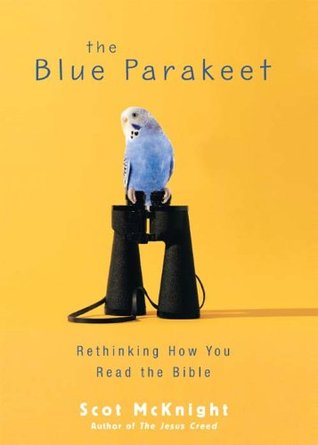More on this book
Community
Kindle Notes & Highlights
Read between
March 16 - March 18, 2018
What we’ve got in the pages of the New Testament are first-century expressions of the gospel and church life, not permanent, timeless expressions. They are timely expressions; they are Spirit-inspired expressions; but they were and remain first-century expressions. We aren’t called to live first-century lives in the twenty-first century, but twenty-first-century lives as we walk in the light of the revelation God gave to us in the first century.
But what strikes me about Calvin’s plan was that he didn’t just plop Bibles into the laps of everyone and say, “Here, read this! Nothing to it! Tell me what you think!” No, he wanted them to learn the Bible right, and to do that they would have to learn some basic theology.
Reading the Bible with the Tradition gives us guidance but it also gives us freedom to differ with Tradition.
We in the Western world are obsessed with our individual relationship with God, which leads us to read the Bible as morsels of blessings and promise and as a Rorschach inkblot. But reading the Bible as Story opens up a need so deep we sometimes aren’t aware we need it: oneness with others.
The relational approach distinguishes God from the Bible. God existed before the Bible existed; God exists independently of the Bible now. God is a person; the Bible is paper. God gave us this papered Bible to lead us to love his person. But the person and the paper are not the same.
I believe our discernments should never become rules or laws. The moment we turn our discernments into rules or the moment we elevate them to the level of official positions, they are headed in the direction of fossilization, inflexibility, and the near impossibility of rethinking, renewing, and reforming.
anyone who thinks it is wrong for a woman to teach in a church can be consistent with that point of view only if they refuse to read and learn from women scholars.
Sadly, some think Genesis 3:16 is a prescription for the relationship of women and men for all time. Instead of a prescription, these two lines are a prediction of the fallen desire of fallen women and fallen men in a fallen condition in a fallen world. Fallen women yearn to dominate the man, and fallen men yearn to dominate women.1 The desire to dominate is a broken desire. The redeemed desire is to love in mutuality. This verse in Genesis 3, in other words, predicts a struggle of fallen wills; they don’t prescribe how we are supposed to live.
Culturally shaped readings of the Bible and culturally shaped expressions of the gospel are exactly what Paul did and wanted. That’s exactly what Peter and Hebrews and John and James and the others were doing. Culturally shaped readings and expressions of the gospel are the way it has been, is, and always will be. In fact, I believe that gospel adaptation for every culture, for every church, and for every Christian is precisely why God gave us the Bible. The Bible shows us how.


